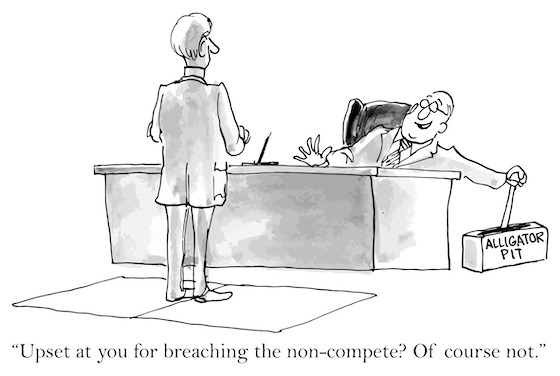
The FTC’s ban on non-compete clauses for most workers throws a curveball at the manufacturing sector. While it has the potential to be a positive change, there are also potential drawbacks to consider.
The good
On the positive side, increased worker mobility could lead to a more dynamic manufacturing landscape. Without non-compete clauses restricting movement, skilled workers can more easily switch jobs between companies. This could spark a competition for talent, forcing manufacturers to offer competitive wages and benefits to attract and retain their workforce.
This is in fact one of the reasons people support the change in regulations. Instead of using non-compete clauses to protect intellectual property, they’ve suggested, it’s being used to make it harder for workers to switch jobs, even during the current labor shortage.
Furthermore, this flow of workers between companies could lead to a cross-pollination of ideas and best practices, fostering innovation across the industry. Companies might also invest more heavily in training and development programs, knowing they can’t simply rely on non-compete clauses to keep their employees.
The bad
However, concerns remain about how this will impact trade secret protection. Manufacturers are worried that employees with access to sensitive information could leave and take that knowledge to competitors. This could lead to stricter monitoring of employee activities or even a reluctance to invest in cutting-edge research and development for fear of losing that knowledge. Additionally, the loss of institutional knowledge from experienced workers who depart for better opportunities elsewhere could pose a challenge.
Proprietary knowledge can be an important asset in manufacturing. The famous cases of non-compete clauses that have recently grabbed headlines were about making sandwiches, arguably not an important area of intellectual property law. But two cases involving glass manufacturers were already smacked down by the FTC for being too severe.
Rexroth has a history of open source approaches and collaboration. This has been positive for manufacturers and for Rexroth. Maybe there’s a lesson to be learned here.
The uncertain
The ultimate impact of the non-compete clause ban on manufacturing is uncertain. It probably depends on factors like the specific industry, company culture, and the continued enforceability of non-disclosure agreements. The coming years will doubtless see the manufacturing sector adapt to this new landscape. The hope is that a balance can be struck where workers have more freedom while companies find effective ways to protect their intellectual property.
